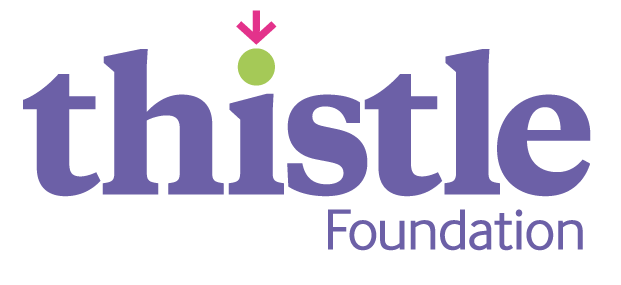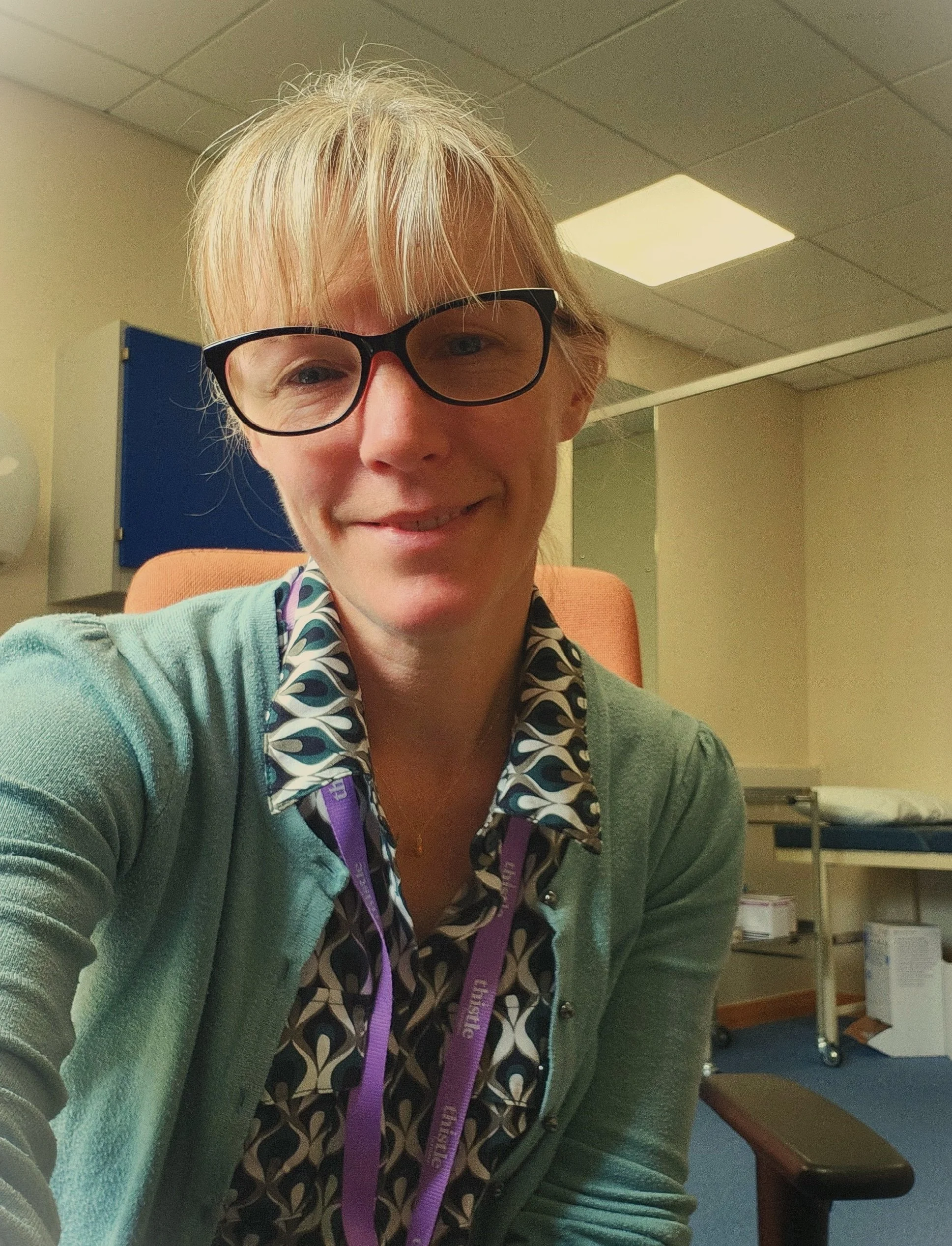Nichola’s story
You’ve worked for Thistle in the Business Support department and then transitioned to being a Health and Wellbeing Practitioner. How did this come about?
I’ve worked for Thistle for quite some time now in various roles and I believe strongly in the organisation's philosophy and approach. The Health and Wellbeing role suits every aspect of who I am as a person. I’m very reflective and like a ‘stretch’, which makes being a Practitioner a great fit.
For my training, I’d already spent years learning and co-facilitating Thistle’s training programmes, including Good Conversations. I knew a lot of the theory, but just hadn’t done the ‘real’ work with people who were seeking our support. My initial on the job training was to shadow some people who were already doing the job and get a sense of the anatomy of the conversation, alongside all the other bits and pieces that come with a professional care and support role.
“The Health and Wellbeing role suits every aspect of who I am as a person. ”

Unlike a lot of traditional services, we’re solution-focused, not problem focused.
When you started working as a practitioner and using your skills in the role, is there anything that surprised you about the role and how people responded to it?
I don’t think there was anything that surprised me, as such. I felt reassured that the approach we use at Thistle is really impactful and, I don’t want to use the word unique, but I think it works for most people – most of the time, if anything, I was surprised at how quickly I noticed myself moving into the role. I felt reasonably comfortable pretty quickly; which was a reassuring sign that it was what I was meant to be doing.
What makes Thistle’s approach so different?
Unlike a lot of traditional services, we’re solution-focused, not problem focused. We work with the whole- person: who they are, what matters to them, what’s important. We don’t ignore the problem, but we also don’t focus on it and we choose to listen out for clues and signs of strengths, resilience, coping; resources that the person has within them, and bringing all that to the surface; using it as a mechanism for transformational change. It just seems to create a little bit of a shift for people and the beauty of it is that you can have one or two sessions with some people, and that can be enough. Or longer if needed, so, we don’t specify the number of 1-1 sessions (that people receive). I think that less is more, and it’s trusting the person and working with that.
What else is different? It’s gentle persistent engagement, as well; we don’t judge people if they don’t make them (the sessions). I’ve had a couple of people recently who I’ve been working with, who have been let down time and time again by services, and they’re really struggling to engage, they’re struggling to meet with me: but I’m not giving up on them! I’m just gently reaching out every now and then. Clearly I can’t do that for ever, but I’ll do it for a considerable amount of time before we say “OK, we’re still here if you need us, but for now…..” These are people who are living with complex, difficult, challenging life circumstances, and really feel beaten down, and it’s hard. I think we recognise that and work with where people are at. And maybe other statutory services might say “Oh, well, at Thistle, you have the privilege of time, not being systemised in the same way, and the luxury of this, that and the other”, but I think as well, there’s an intentional choice there, that we make (to work in this way).
“ I felt reassured that the approach we use at Thistle is really impactful”
…we choose to listen out for clues and signs of strengths, resilience, coping; resources that the person has within them
“You’re funding work that offers something different; an opportunity for people living with long term conditions to re-discover a sense of who they are...”
What to you is the most fulfilling part of the job?
I can pinpoint moments I’ve had with people that I’ve been working with, where they’ve just…moved on. They’ve either come to terms with their situation, and they’ve found a way for themselves, of being able to cope with that in a way that’s good enough for them and their wellbeing. Or they’ve had a real moment of realisation of who they are, and what matters to them, and how resourceful they are and how much they can do for themselves, which is hugely rewarding and satisfying, seeing that. That’s a definite plus of the work; seeing people being able to move on with their lives.
What would you like to be able to say to the people who fund Thistle’s work, both individuals or funding bodies?
Thank you! You’re funding work that offers something different; an opportunity for people living with long term conditions to re-discover a sense of who they are (outside of their difficulties), their best hopes for recovery and the future and a surfacing of their own unique ways of coping. Our work isn’t magic, but it seems to be worthwhile for a lot of people.

